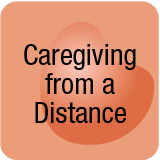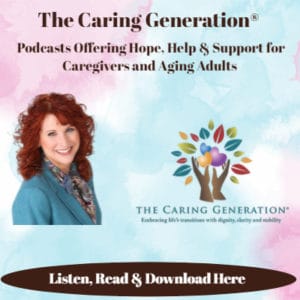Pleasantly Ignorant about Your Health
 Do you ignore signs of chronic disease and other medical conditions? Do you fail to ask questions that might result in answers not to your liking? This includes asking your doctor questions about your health and the doctors of your loved ones about their health.
Do you ignore signs of chronic disease and other medical conditions? Do you fail to ask questions that might result in answers not to your liking? This includes asking your doctor questions about your health and the doctors of your loved ones about their health.
Parents are masterful about not providing information to adult children about health. Somehow important information relayed by doctors is forgotten or ignored. If you are an adult child caregiver at a distance you can become more involved in the care of your parents by requesting your parent’s approval to speak to physicians or by hiring a local care advocate to attend medical and related appointments with your parents.
Reality is that sometimes, the medical community fails to provide sufficient information to allow you to learn about your health and to make informed decisions? The answer may be a little of both. A recent study, led by Dr. Lisa Lezzoni of Harvard Medical School1 indicates that doctors are not always honest with patients.
Many older adults believe the “doctor knows best” theory. That whatever the doctor says must be right. As we age, this may not always be true. How many older adults have been diagnosed with treatable, yet serious medical conditions and live day after day in a world of pleasant ignorance about present and future health consequences. How many older adults have health conditions viewed by physicians or medical professionals that will end their life within a year or two — yet discussions are never initiated by the physician about this reality.
Look at kidney disease. Common symptoms include: changes in urination, ankle and leg swelling, fatigue, skin rashes, itching, nausea and vomiting, shortness of breath, feeling cold, dizziness, back pain. Diseases contributing to kidney disease include heart disease and diabetes along with conditions of high or low blood pressure, neuropathy, vision difficulties, thyroid and a long list of complications. Reading this, one might wonder if individuals with kidney disease lead regular lives – they do, some have dialysis on a regular basis.
But is there harm lurking in subjects not discussed, questions not asked or recommendations not taken seriously? According to the study, “doctors give overly positive prognoses because they do not want to deliver bad news, especially when a patient is running out of options”. This leads many physicians to NOT have dead serious discussions about the importance of managing the health conditions especially when the physician he or she may be at fault for similar issues of being overweight, poor nutrition and lack of exercise.
The health system is a system of averages for unhealthy people. Average weights, average ranges for blood test results, average results for procedures etc. What if you want to be better than average, will you doctor tell you what is required or beneficial; only if you ask.
I was recently in a physician’s office and asked why the side effect of a particular medication was not explained. The response was, “that happens in only 30% of patients so I did not want to worry anyone.” Unfortunately my client happened to be in the 30% of patients experiencing side effects and there was worry.
Patients can no longer accept “the doctor knows best” mentality and bury heads in the sand rather than asking questions for which you might not like the answers. Assuming you want the best care, you have to ask the difficult questions, sometimes receiving answers you don’t like – maybe a recommendation to change a lifestyle. Open and honest communication is the only way for individuals to receive information to allow fully informed decisions about health care. Unless that is you would rather be in a state of pleasant ignorance one day shocked out of reality about a health condition because of the common excuse “no one told me”.
Reference:
1 http://www.foxnews.com/health/2012/02/09/study-finds-doctors-not-always-honest-with-patients. Dr. Liza Lezzoni of Harvard Medical School and Director of Massachusetts General Hospital Morgan Institute for Health.
© 2012, 2013 Pamela D. Wilson, All Rights Reserved.



